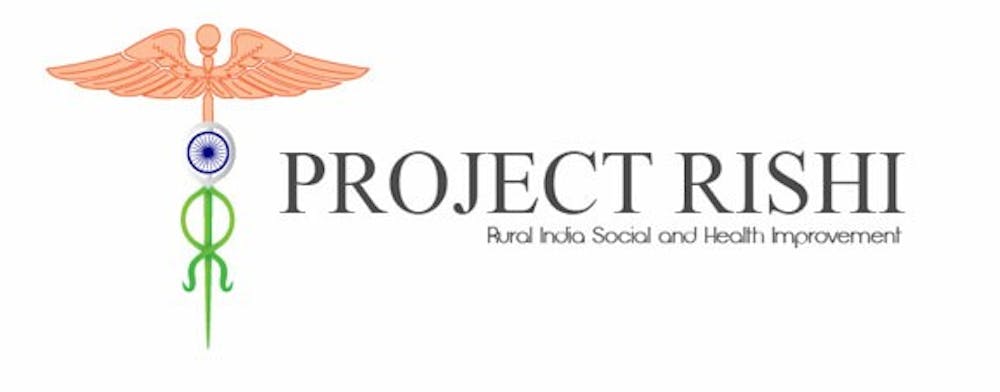During the winter of her second year at the University, third-year College student Sajala Shukla decided she wanted to give back to the community in a personal way. In high school, Shukla heard about the work Project RISHI members were doing at various colleges, which inspired her to found the University’s chapter last winter.
Project RISHI, which stands for Rural India Social and Health Improvement, is a nationwide non-profit organization. Every chapter focuses on a different rural village in India and helps residents fulfill a basic need.
“I have a lot of family in India; my grandparents are all from rural villages, so I’ve seen the conditions that people are in,” Shukla said. “You want to give back, but you don’t want to go in and be like, ‘I’m going to do this for this village’ without assessing what their needs are and not really having sustainability.”
The group is currently working in the Mulshi district of Pune, Maharashtra and partnering with Rachana, another group doing work in rural education and health improvement. Together, the organizations have picked out five high schools in the area and during Project RISHI’s trip to India last summer, group members talked with girls between the ages of 11 and 14 about staying in school and basic health needs.
“Once they stop going to school, their next option is to get married,” Shukla said. “After they get married, they have kids. And if you don’t know how to take care of yourself … you’re not going to know how to take care of a child. So there’s just this really vicious cycle of malnutrition, sexual health problems, general hygiene problems.”
Project RISHI plans to work in Puna for three to four years before allowing the project to become more community-based.
“This project that we’ve developed, we’re turning it over to the community,” Shukla said. “The schools, the doctors … they’re going to have access to all these resources.”
During last summer’s trip, the students also visited a home in a rural area where a lot of children had grown up on the streets, did not have parents and were victims of sexual and verbal abuse.
“In one case, there was a child where his grandmother was the one taking care of him,” Shukla said. “She literally picked up trash from the street — that was her job. She was a single grandmother and she couldn’t take care of the baby, so she would give the baby drugs so that the baby would stay asleep for the whole day. You can only imagine how much [that hinders] development.”
Experiences such as these have inspired Shukla and other members to expand the organization and continue giving back. In the group’s most recent fundraiser, the Ganhdi Benefit Dinner, members raised over $1,000. The event, put on by the Hindu Student Council (HSC), benefitted Project RISHI and Asha for Education and attracted over 220 students and faculty members.
“[The Gandhi Benefit Dinner] is a medium to get together people from all sorts of backgrounds from U.Va. with the idea that October is Mahatma Gandhi’s birthday,” fourth-year College student and HSC executive member Barot said. “So we’re using it as an event to remember what he did and why he did it. All the money that we raise goes to organizations that are involved with service.”
The event included Indian catering, formal attire and performances from a number of groups, including the Hindu Dance team HooRaas, the Bollywood fusion team Sharaara and the Radio Music Society.
The other CIO benefitting from the event, Asha for Education, aims to increase literacy within India, especially among young girls. In past years, funds from the dinner have been split between this organization and fees to sponsor a child in India throughout primary school. However, with the emergence of Project RISHI, HSC decided to dedicate half the proceeds to a new cause.
Both Barot and Shukla said their organizations are open to anyone who feels like giving back to the community — regardless of background.
“A lot of the people in these organizations aren’t even from India, but they’re giving back because of the idea of service,” Barot said. “At the end of the day, the bigger picture is no matter where you’re giving back, you’re giving back.”
In the next year, Project RISHI is planning on co-hosting a fall event with a fraternity and returning to India with an even larger group of students.







